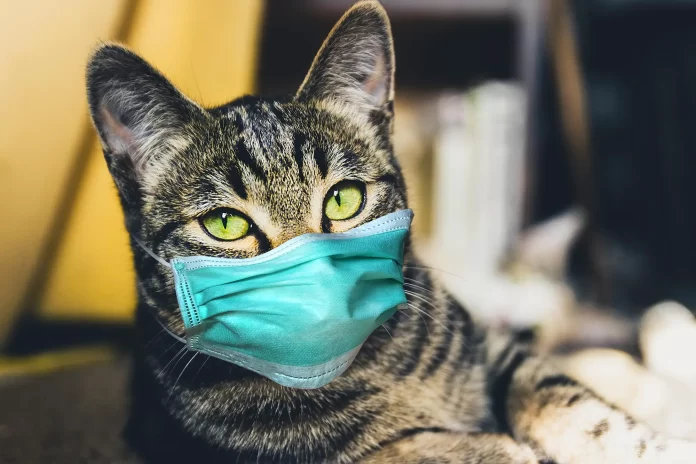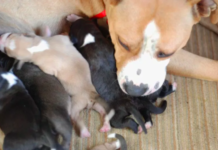Last Updated on August 29, 2023 by Fumipets
Can Cats Get COVID-19?
Cats have been shown to be susceptible to COVID-19, the respiratory illness caused by the SARS-CoV-2 virus. While cases of cats contracting the virus are relatively rare, transmission from humans to cats and vice versa has been documented.
Monitoring the health of pets and practicing safety measures is important to reduce the risk of transmission and ensure the well-being of both cats and their owners.
COVID-19
Everyone around the globe has been impacted by the COVID-19 epidemic, even our pets. The way we live has altered during the previous two years. Being at home may have allowed you to spend more time with your cat, but it has also undoubtedly given you plenty of time to consider if and how the new coronavirus may affect your cat. However, can cats get COVID-19? Read on to find out
Can Cats Get COVID-19?
Yes, COVID-19, the illness caused by the SARS-CoV-2 coronavirus, may infect cats and other household pets. The COVID-19 virus tends to spread when pets come into touch with humans who are already sick, according to the Centers for Disease Control (CDC).
Can I Give My Cat COVID-19?
In homes where people have COVID-19, cats may get the disease rather often. When Texas A&M College of Veterinary Medicine & Biomedical Sciences veterinarians examined dogs and cats living with individuals who had tested positive for COVID-19, they discovered the virus in roughly 17% of the animals. Therefore, there is a good potential that your cat might get COVID-19 if you do.
The CDC does advise avoiding contact with your cat if you have COVID-19. This covers “petting, snuggling, kissing, licking, sharing food, and sleeping in the same bed.” We are well aware of how challenging that might be. After all, when we are unwell, our cats provide much-needed comfort. The greatest thing you can do is seek guidance from your veterinarian. If your cat is in good health, you may be able to adopt some security measures and still have some cuddle time.

Can Cats Give COVID-19 to Humans or Other Animals?
Cats may get COVID-19 from people, but can they also transmit it to people or other animals? According to the CDC, “the risk of pets spreading COVID-19 to people is low.” According to the American Veterinary Medical Association (AVMA), dogs and cats “are not easily infected under natural conditions, and there is no evidence that infected dogs and cats spread the virus to other animals or to people.”
Despite the fact that this is wonderful news, it still may happen. Before bringing your cat to the doctor in person if you have COVID-19 and your kitty gets ill, make contact with your veterinarian. If the vet determines that your cat has to be examined, they will want to take certain measures (and they’ll probably want your cat to be brought in by someone who isn’t sick).
Symptoms of COVID-19 in Cats
SARS-CoV-2-infected cats often don’t exhibit COVID-19 infection symptoms. When cats do get COVID-19, the symptoms are often quite modest but are comparable to those in people. The majority of cats have the following signs of upper respiratory tract infections:
Coughing
Fever
Trouble breathing or shortness of breath
Lethargy
Runny nose or nasal congestion
Sneezing
Eye discharge
Vomiting
Diarrhea
Treatment For COVID-19 in Cats
Treatment is often not essential since COVID-19 does not typically lead to major sickness in cats. Some cats may need supportive care, which may include rest, drinks, and painkillers if necessary to reduce discomfort. Over the phone, your veterinarian may be able to provide you with home supportive care advice. But some cats could need hospitalization, particularly if they get dehydrated or have secondary illnesses.

How Long Does COVID-19 Infection Last in Cats?
SARS-CoV-2 coronavirus-infected cats normally only shed the virus for a short period of time. Depending on the specific cat, symptoms might persist anywhere from a few days to a few weeks.
Is There a Cat Coronavirus Vaccine?
A test-tube coronavirus vaccination has been administered to large cats and other animals in various zoos. However, neither the vaccination nor the veterinarians’ recommendations are accessible for domestic cats.
Questions & Answers: Can Cats Get COVID-19?
1. Can cats contract COVID-19?
Yes, cats can contract COVID-19. While cases are not as common as in humans, there have been instances of cats testing positive for the SARS-CoV-2 virus.
2. How do cats get COVID-19?
Cats can get COVID-19 through close contact with infected humans or other animals. Respiratory droplets containing the virus can be transmitted to cats when an infected person coughs, sneezes, or touches them.
3. Can cats transmit COVID-19 to humans?
Yes, there have been cases of cats transmitting the virus to humans, although such instances are less common. It’s important to follow hygiene practices and avoid close contact if you or your cat is feeling unwell.
4. What are the symptoms of COVID-19 in cats?
Cats infected with COVID-19 may show mild respiratory symptoms such as coughing, sneezing, nasal discharge, and lethargy. Some cats may not exhibit any symptoms at all.
5. How can I protect my cat from COVID-19?
To protect your cat from COVID-19, follow similar precautions as you would for yourself. Practice good hygiene, wash your hands before and after handling your cat, and avoid close contact if you’re feeling unwell. If you test positive for COVID-19, consider isolating from your cat to prevent potential transmission. If your cat shows any concerning symptoms, consult a veterinarian.
Ensuring the health and safety of pets during the pandemic involves understanding the potential risks and taking necessary precautions to minimize the spread of the virus.


















